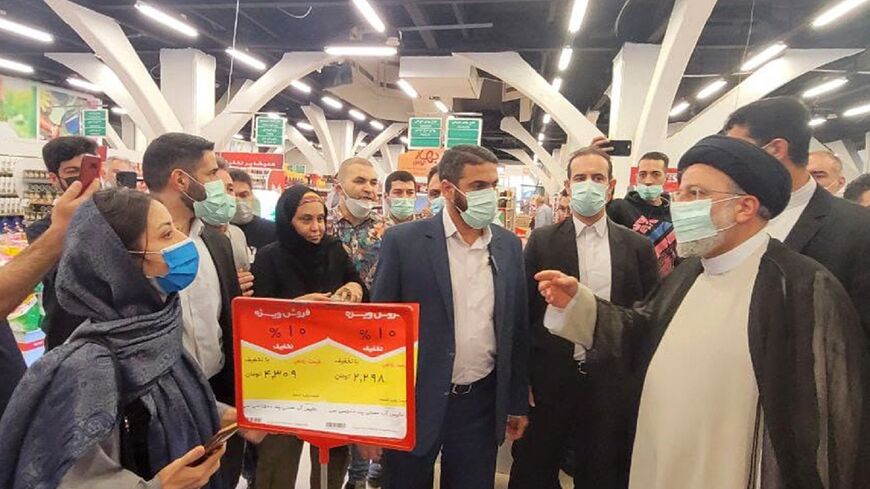The emerging competition between Western democracies and authoritarian nations led by China poses serious challenges to the existing international system, say experts.

With its recent actions, China is signaling that it views the US-led international order as no longer legitimate, said Sari Arho Havrén
In the past few months, democratic countries, mostly led by the United States, have been trying to form a united front to support Ukraine in its defense against Russia's invasion.
While they are closely coordinating efforts to put pressure on Moscow, Western governments are also keeping an eye on China's diplomatic efforts, especially its attempts to strengthen ties with autocratic countries.
Since Russia began its invasion of Ukraine at the end of February, Western nations have repeatedly warned Beijing against providing military aid to Moscow.
This week, senior US officials told Reuters news agency that they had not observed any "overt" Chinese military and economic support for Russia.
Nevertheless, the Chinese government has so far been unwilling to condemn Russia's actions in Ukraine.
Ideal partners for Beijing
Over the last two months, Beijing has also organized high-level meetings with the military government in Myanmar, pledging cooperation and exchanges in all areas, while hosting a multinational meeting to discuss the humanitarian and economic crisis facing Afghanistan.
Some experts believe ensuring stability in these countries is in Beijing's interest as they all share a land border with China. "There is a natural reason for Beijing to reach out to them," said Ian Chong, a political scientist at the National University of Singapore (NUS).
Although China doesn't limit its outreach activities to authoritarian states, they seem more ideal partners for Beijing because deals struck with them tend to receive less scrutiny and oversight.
"What happens is that while Beijing is doing outreach with a variety of countries, the ones where backlash can be more managed in the short term, tend to be ones that are able to keep a lid on opposition or scrutiny to these deals," said Chong. "They can more easily stick to the deals without too much political pressure."
China's challenge to the US-led order
With its recent actions, China is signaling that it views the US-led international order as no longer legitimate, said Sari Arho Havren, a visiting researcher at the University of Helsinki.
"The Chinese Communist Party elite believes that it offers a superior form of governance with stability and economic development, and recently with its handling of COVID," she told DW.
"China's development and its challenging the United States as the most powerful nation in the world resonates especially in the global south. Since China does not accept the current international order, it challenges it where it doesn't hurt itself too much," she added.
Last month, Chinese President Xi Jinping proposed a "global security initiative" that will uphold the principle of "indivisible security" during the annual Boao Asia Forum. According to him, the world should respect the sovereignty and territorial integrity of all countries, while paying attention to the "legitimate" security concerns of all.
"We should uphold the principle of indivisibility of security, build a balanced, effective and sustainable security architecture, and oppose the building of national security on the basis of insecurity in other countries," Xi said.
While details of the initiative remain vague, Ivana Karaskova, founder and leader of MapInfluenceEU, a project that maps Chinese and Russian influence in Central and Eastern Europe, said that it's targeted at developing countries.
"It is aimed at developing countries with emphasis on shared stage of development or historical experience with colonialism, and stressing principles of sovereignty and non-interference."
A big blow to international organizations
As the United States and China both try to consolidate their relationships with countries that share similar values, fears abound about the emerging competition posing challenges to the existing international system.
"Now we have entered into a phase where various geographies have woken up to their strategic and critical dependencies and have started to, more or less, protect their own open markets from Chinese state-subsidized companies and force reciprocity in their own terms," Havren said.
"These emerging two blocs and their rivalry will radiate into all areas, including defense, trade, investments and technology. The existing international system is therefore challenged by the loose coalition led by China and Russia, while Western democracies are trying to defend it," she underlined.
Havren predicts that this rivalry would deal a big blow to international organizations, which are in danger of becoming "obsolete" and are already showing their incompetence in solving burning problems, including the Ukraine war.
Maintaining a level of cooperation
Despite the growing divide between the two camps, Western democracies are still hoping to maintain some level of cooperation with Beijing on certain issues, such as climate change. However, it hasn't been easy given the growing competition and deepening mistrust.
John Kerry, US special presidential envoy for climate, recently said climate cooperation between Washington and Beijing has become "harder" due to a sharpening of differences of opinion between the two sides. "That makes the diplomacy more complicated," he added.
Chong from the NUS also thinks the efforts to try to get Beijing to come around on climate change have become more difficult.
"Everyone recognizes that every country needs to pitch in on the environment, but the differentials and who does more and who does less, as well as whether countries that have developed earlier are able to tell others what to do seem to create some continuous tensions," he said.
While countries recognize the need to work together, Chong stressed, the more active cooperation may only happen on specific issues: "I think mutual suspicion will get the better of the various capitals."
Edited by: Srinivas Mazumdaru












